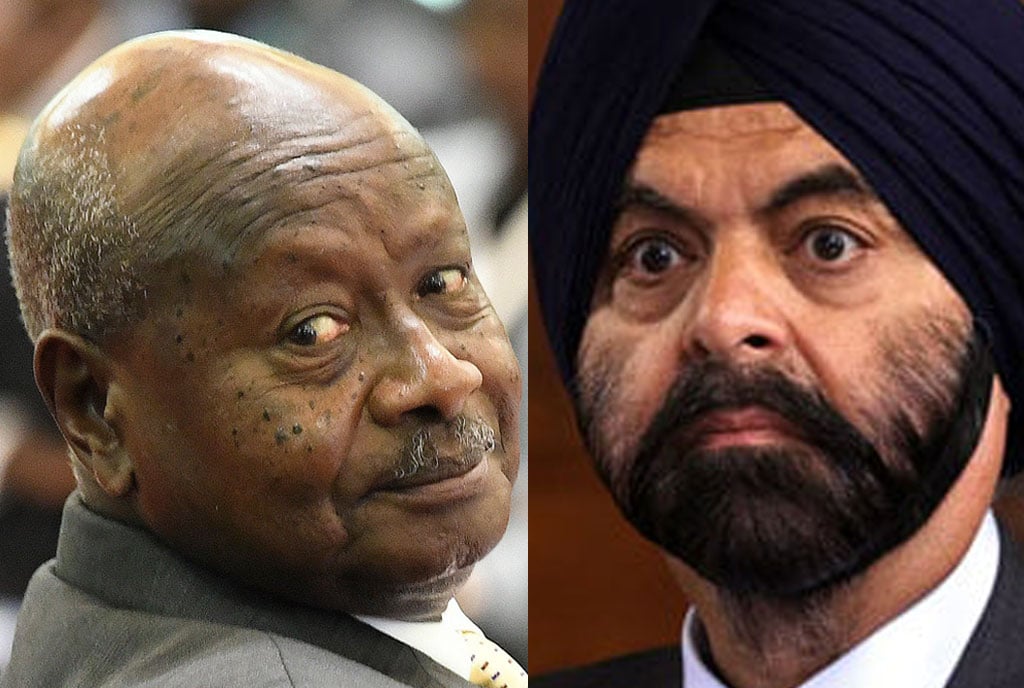Prime
A few things we learnt about ourselves from Uganda’s first presidential debate

2016 Uganda presidential debate
What you need to know:
Mabirizi is not an outlandish figure. He is the typical Ugandan; lacking sophistication and political gravitas, and with an intellectual modem running on dial-up speeds yet supremely confident in his abilities, oblivious to his shortcomings. If you close your eyes and randomly point in Cabinet or Parliament, you will pick out a Mabirizi or a Nasser Ntege Sebaggala...
Caught between exposing himself to public scrutiny on live television and being called a coward, President Museveni chose the latter option (to the befuddlement of presidential letter writers) and dodged last week’s televised presidential debate.
It would have been good to have Mr Museveni at the podium, better if he turned up and argued in a civil manner, but best that he did not show, for his own reputation.
Consider, for instance, that one of the moderators, Nancy Kacungira, was barely a year old when Museveni took power in 1986. The incumbent is well placed to explain to her the historic challenges Uganda inherited at independence and continues to battle. However, I doubt he can convince her and her contemporaries that he has the mental strength and clarity to navigate a post-modern world in which robots are taking jobs from man, people are transacting in virtual currencies, business models are built on augmented reality and companies with networks and no physical assets are worth more than oil majors.
Thus in his absence, the country got an opportunity to see the quality of post-Museveni leadership.
Here are a few things that we learnt.
First, the good news is that Uganda will be all right after Museveni. In his 30 years in power, the incumbent has come to see himself as the country’s saviour with a personal mission to save Ugandans from themselves. In his view, no one else has the vision to address the country’s strategic bottlenecks or guarantee its security. Il est l’état.
On the evidence of the night, Mr Museveni need not worry at night. While the candidates did not have enough time to argue their policy positions, and while they are not the sharpest tools in the drawer, either collectively or individually, there was enough in there, from Maj Gen Benon Biraaro’s deep-think to Abed Bwanika’s pragmatism, to Kizza Besigye’s governance reform agenda, to leave one reassured that there is more than one visionary in the country.
The bad news is that we will need a revolution in the post-Museveni era to get rid of the carpetbaggers that now dominate our politics. Watching Maureen Kyalya swing (and miss) her kitchen knife in this gun battle, it was hard not to sit back and ask why the leading lights of the gender equality movement have not made the transition to national leadership.
Uganda was the first African country to get a female vice president but that appears to have been an end in itself, rather than the cracking of the political glass ceiling for women in this country. With all due respect to Ms Kyalya (my friend Beti Kamya and Miria Obote before her), the strongest and most credible female presidential contenders are yet to run – and Uganda desperately needs them to join the fray.
Similarly, the love child of a poor education system and a commercialised political culture was demonstrable in the lack of coherence or critical thinking by some of the candidates. Take Pastor Elton Joseph Mabirizi. It is not just his inability to articulate himself or his almost comical antics. It is that every time he opened his mouth, he confirmed our worst fears about what living in a mediocre society and getting a half-baked education has done to us.
Mabirizi is not an outlandish figure. He is the typical Ugandan; lacking sophistication and political gravitas, and with an intellectual modem running on dial-up speeds yet supremely confident in his abilities, oblivious to his shortcomings.
If you close your eyes and randomly point in Cabinet or Parliament, you will pick out a Mabirizi or a Nasser Ntege Sebaggala, for those are our people, our leaders. And that is the most important take-away from the debate; that as long as smart Ugandans continue to shun politics, they will continue to pay the penalty of being governed by their inferiors “from up to down there”!
Mr Kalinaki is a Ugandan journalist based in Nairobi. [email protected] Twitter: @Kalinaki




